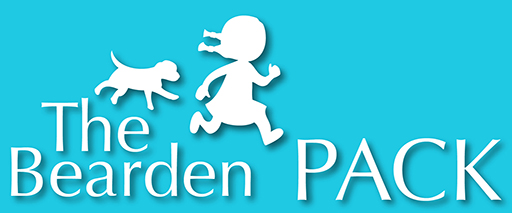It’s very common for a puppy or even an adult to have diarrhea. Often stress or just a simple upset stomach can be the cause. Sometimes, if it doesn’t go away the usual culprits are giardia and coccidia. To those unfamiliar with the parasites it can be scary when a vet diagnosis your fur member with either of them.
You shouldn’t be too alarmed if your vet diagnosis them with it. Giardia and coccidiosis is an easily contracted parasite. Often it is contracted by eating or coming into contact with infected feces. Other methods are from contaminated water. Often kennels and boarding facilities are infected with it. If your dogs are active at some point in their life they will eventually come into contact with it.
The reason I don’t become immediately alarmed is because many dogs can live with these parasites in their gut and be totally fine. They may never show symptoms that it even exists. My dogs frequent the lake, creeks, streams, ponds and often get infected from the contaminated water. When stressed symptoms appear. Active dogs will eventually come across it at some point. Treating it is fairly simple. Puppies are young and their immune system is undeveloped. It’s more important to seek treatment when they are young.
Symptoms
The first signs of these parasites are diarrhea. Often times the stool contains mucous and may contain traces of blood in it. A dog may also vomit, have loss of appetite and even become dehydrated from the loss of fluids in the feces. If these signs are evident then a trip to the vet is necessary. Especially as signs of parvo can be very similar. A simple fecal test from the vet can tell you if your pet has giardia or coccidiosis.
Treatment
For giardia most vets will prescribe Flagyl (metronidazole). For coccidiosis most vets prescribe Albon (sulfadimethoxine). Panacur is also another treatment used giradia and I’ve even hear for coccidia, although the main use of Panacur is for worms. Most treatments are 3 to 5 days. Sometimes longer if the problem is really bad. It is very important to remove any feces in your yard and to clean up after them so that they do not get reinfected. A bath may be needed to clean their rear. After treatment I generally give my dogs a probiotic to replenish the natural bacteria in their gut. Pumpkin, or rice with boiled chicken can also ease their stomachs.
Now I am not a veterinarian. You should always consult your veterinarian for advise. I give this information to give some insight on what is generally used by vets. Many people also choose to go a more wholistic approach. They don’t like to have their pups ingest harsh chemicals.Recently a pup parent of ours used diatomaceous earth to combat giardhia. It was the only wholistic method that worked.
 I’ve also heard of using coconut oil as a way of combating the parasite. My only concern with using no medications is that the growth of a puppy can be inhibited if diahrea and vomiting lasts too long. In that event, medications would be a better use than none at all. At least in my opinion.
I’ve also heard of using coconut oil as a way of combating the parasite. My only concern with using no medications is that the growth of a puppy can be inhibited if diahrea and vomiting lasts too long. In that event, medications would be a better use than none at all. At least in my opinion.
If symptoms are seen in a puppy seek immediate attention from a veterinarian. A happy and healthy puppy will help with a happy family.




Leave a Reply